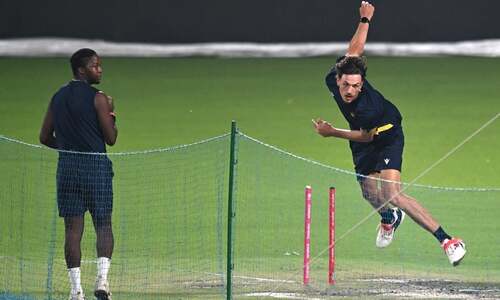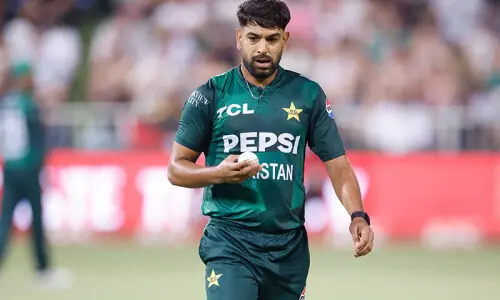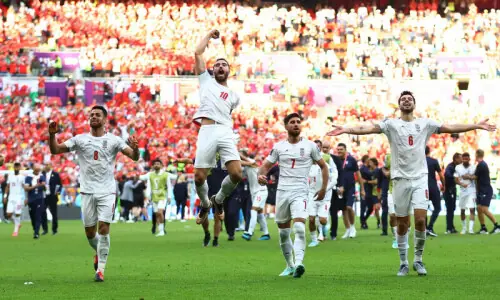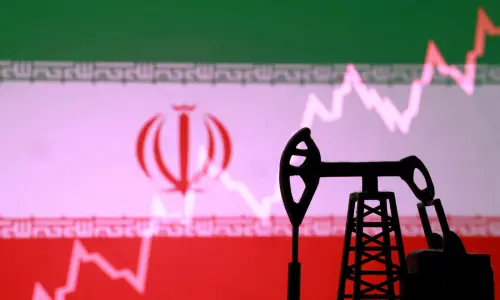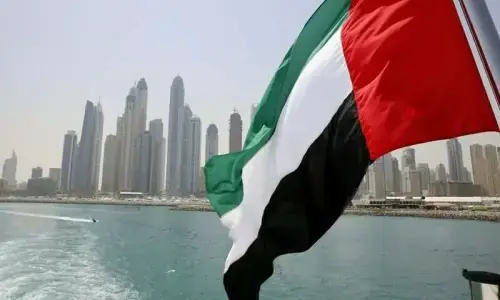
In the previous parts, I discussed the humble beginnings of football in Pakistan from independence (1947), early growth, the ‘Golden Age’ of the 1960s followed by a sudden, ‘Dark Age’ throughout the 1970s that stunted the potential growth of beautiful game in the country. The gloom was somewhat lifted in the early half of the 1980s as Pakistan scratched and scrapped itself back from the international wilderness with a new, bold, but grossly inexperienced generation of players who strived to bring back the joy on the face of football lovers in the country. But Politics and bad administration impeded progress in the 90s before the current President and his media and marketing savvy administration tried to turn a corner.
2003 till date: The Faisal Saleh Hayat era
The new PFF regime did not waste time as a more proactive media approach towards football was adopted under Faisal Saleh Hayat. Though, admittedly, the efforts of PFF Media Cell led by Syed Akber Ali Wahidi soon made it look as if Faisal Saleh Hayat was the long awaited Messiah of Pakistani football! With Punjab Assembly veteran Arshad Khan Lodhi as General Secretary, PFF attempted to set the wrongs of the past right. The introduction of the Pakistan Premier League (PPL) in 2004 was the first major step as the National Football Championship was phased out. Wapda became inaugural PPL champions with Army finishing second and KRL third, thanks to the goals of Multan-born striker Arif Mehmood. While its given the game a boost the structure of the league needs revamp as it barely lasts 3-4 months each year for ‘budget constraints’ (sponsor-less bear in mind) at the expense of physically draining players of each team.
Pakistan Premier League
Since its inception the PPL has been a 3-horse race between these three sides with Wapda winning four titles, Army two and one for KRL so far. Wapda, in fact played the entire 2007-08 Premier League season unbeaten and were crowned champions in February 2008! The emergence of clubs like PMC Athletico Faisalabad, PPL founding member Afghan FC Chaman, and Baloch FC Nushki has been comforting since the stronger, well-established department sides poach talented players without any transfer fees or compensation involved! This coupled with the lack of corporate sponsorships and media coverage have hampered growth significantly even with the availability of better training facilities, international awareness, and growing popularity of football among the public.
The revamping of the National Football Challenge Cup provided surprising winners like Navy (2008), although KRL won the recent two to complete their ‘Double’ of league and cup wins in 2009. The Geo Super Football League of 2007, running as a parallel city-based league to PPL, held in Karachi was the first televised domestic championship that saw record crowds at Peoples Stadium Karachi. Islamabad United won that edition beating Karachi Bazigar on penalties in the final. However, that project failed to take off because of reasons PFF has yet to reveal. It wasn’t until 2010 that the Geo League came back with a KESC-owned Karachi Energy featuring Muhammad Essa, Muhammad Rasool, and Shakir Lashari beating the Chaman-dominated Quetta Zorawar 1-0 in final.
The winners of the PPL qualified to participate in the third tier of the Asian club championship, the AFC President’s Cup minor from 2005 onwards as AFC revamped its Asian club structure in mid-2000s into three separate categories. The AFC Champions League for the bigger leagues in Asia, AFC Cup for mid-ranked leagues, and AFC President’s Cup for lower ranked leagues of SAFF & Central Asian regions like Pakistan. Despite Pakistan hosting the 2007 edition at Punjab Stadium featuring Army (who even lost 3-2 to Bhutan’s Transport United!), only Khalid Butt’s WAPDA managed to make a credible impact in the 2009 edition as it lost in extra time of semi-finals 4-3 against home side and eventual winners Regar-TadAZ of Tajikistan.
Women’s football also made its debut in 2005, albeit under AFC-FIFA prerequisites for continued development grants, with a steady increase in local teams like Diya FC Karachi, Young Rising Star FC Rawalpindi etc allowing young girls a first taste of the beautiful game in Pakistan and the chance to play for national team as shown in the recently concluded 2010 SAFF Women Championship held in Cox’s Bazar, Bangladesh.
Karachi’s boom
Karachi too has seen resurgence in football activity with Karachi United FC emerging in the mid 2000s to revolutionise grass-roots level football with its annual School Championships as well as the popular Karachi Football League competitions held over the last seven years consistently. Karachi United also formed six free academies in Lyari, Korangi, Malir, North Karachi, North Nazimabad and Defence, where all necessary facilities and free kits are provided to all the kids for training under KUFC-hired professional coaches on monthly salary basis. The academy is likely to create a big pool of player to pick from for the national squad in the future.

The amount of football activity in Karachi is staggering with various minor tournaments being held on a daily basis in places like Lyari, Orangi, Malir, Landhi, Korangi, Banaras etc that often become feeder teams to Karachi based department sides like KESC, NBP, HBL, PIA, SSGC and KPT.
The national team results have shown considerable improvement, with China’s Wang Xiao He and former PIA stalwart Tariq Lutfi combining to bring back the South Asian Games gold in the 2004 edition hosted in Islamabad. The match was telecast live on PTV and saw midfielder Abdul Aziz -then of a local Karachi club Tanzeem Sports Gizri, now NBP captain - score the winner against what was India’s U19 team in the final. Muhammad Essa and Jaffar Khan put in outstanding performances in the tournament.
The 2005 saw the first, and as of yet the only, Indo-Pak Friendship series held in June-July. It saw Pakistan face tradition rivals India in televised games held at Quetta (1-1 thanks to a late Muhammad Essa free kick), Peshawar (0-1) and Lahore (3-0). The hosts won the series on goal difference with then Prime Minister Shaukat Aziz as chief guest at the final game.
The year also saw Bahrain’s Salman Ahmed Sharida take charge of the side for 14 months from SAFF Cup 2005 in Karachi until 2006 Asian Games in Doha, Qatar. Pakistan played a total of 30 (official and unofficial) matches during his term and performance of the team improved a great deal. 2005 saw the first ever Pakistani-origin players from abroad play for Pakistan with Usman Gondal (former Leicester City youth, now retired) and the most high profile player Zesh Rehman of Premiership side Fulham FC play for Pakistan. Such inclusions helped boost the game at both domestic level as well as among the Pakistani expatriate communities across the world.
Among local discoveries of Sharida was Wapda’s right-back Naveed Akram as he combined impressive defensive displays with great goal-scoring ability as witnessed against UAE in Asian Cup qualifiers of 2006 and the Asian Games against Japan in Doha. Because Sharida’s tenure was paid by Bahrain FA, he faced a pay dispute with PFF and BFA as 2006 ended with him leaving the post. Some of his tactics were still retained in the side as a Farooq Shah (NBP) inspired Pakistan sensationally beat Singapore in Olympic preliminaries of 2007 under Sharida’s local assistant coach Muhammad Rasheed (Railways), only to face heavy defeats against Arab sides in main qualification rounds a few months later.
The inclusion of quality foreign stars Adnan Ahmed, Amjad Iqbal, Adam Karim, Azeem Razwan, and Iltaf Ahmed for the World Cup qualifiers against Asian champions Iraq in Oct 2007 failed to stop the rot. Akhtar Mohiuddin’s questionable tactics and team selections in those qualifiers as well as AFC Challenge Cup qualifiers and SAFF Championship of 2008 were to blame for the team falling short despite the better talent at national team’s disposal. This showed how desperate Pakistan needed to combine the growing foreign contingent with best domestic talent under a level-headed and fair foreign coach on a long term appointment with a proactive and dedicated administration in charge of the game. That wish was fulfilled, if only for a year, with the appointment of veteran Austrian coach George Kottan in 2009 but his efforts were hampered by in-fighting and showed that time was needed to make results count in the long run.
2010 saw Pakistan’s lone international action in the Asian Games under Akhtar Mohiuddin once again; this time in charge of a new-look, young team. Despite initial refusal of Pakistan Olympic Association in sending a football team in the 2010 Asiad, PFF managed to get a late approval to send the squad, on PFF’s own expenses this time. The appointment of former Tottenham Hotspur legend Graham Roberts as a ‘coaching consultant’ for 8 weeks was not enough as he played second fiddle on the bench to Akhtar Mohiuddin’s tactics and decision making. This again led to a heavy defeat against Thailand 6-0, a goal-less draw with Maldives with KRL defender Samar Ishaq fumbling a precious penalty, and a 2-0 defeat at the hands of an Oman U21 side. Gradual improvement in the side was obvious but it needed persistent practice without unnecessary inclusions of washed up department favourites to really gel as a unit.

2011 promises some interesting times although failure cannot be avoided given how PFF could not get financial backing for Graham Roberts’ winning a permanent coaching role. With AFC Vision Asia programs getting to Pakistan, and the 2011 PFF General Elections that could potentially cause Faisal Saleh Hayat’s unchallenged 8 year reign to face stiff competition, one hopes that the interests of football are not damaged.
Pakistani football has come through a turbulent, exciting, and promising cross road after years of ups and downs. The standard of the game has improved, local coaches have increased in number, popularity of the game has found the homes of common Pakistanis. All this is a still untapped gold mine that could make Pakistan a potentially competitive side in Asia.
All it requires is genuine dedication, focus, commitment, sponsorships, awareness, and competitive action at home and abroad to really set the stage for a football revolution in this country.
The onus, as always, is with the Pakistan Football Federation. Game on, Gentlemen!
*Special thanks to the Co-Founder, Webmaster, and Chief Editor of FPDC Malik Riaz Hai Naveed, veteran football journalist Riaz Ahmed, and the Pakistan Football Federation (PFF) for providing the information that helped create this article chronicling the history for Pakistani football.*
The writer is the chief editor, Pakistan correspondent and forum administrator of FootballPakistan.Com and would like to thank the co-founder, webmaster, and chief editor of FPDC Malik Riaz Hai Naveed, veteran football journalist Riaz Ahmed, and the Pakistan Football Federation for providing information that helped create this article chronicling the history for Pakistani football.

